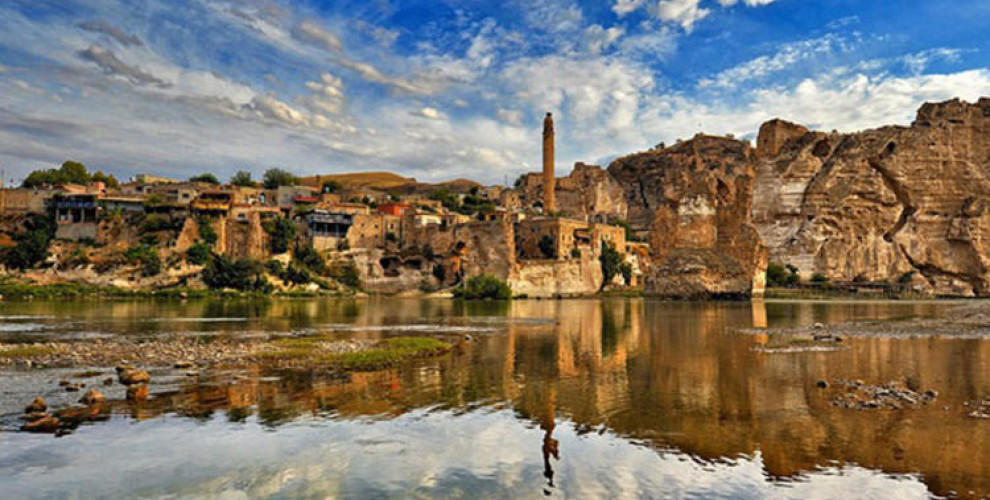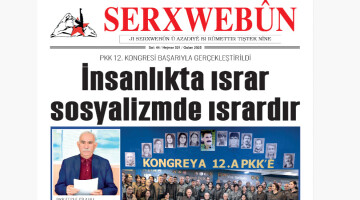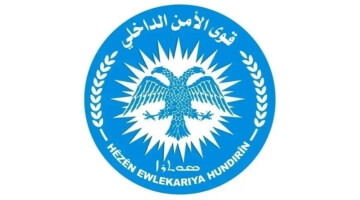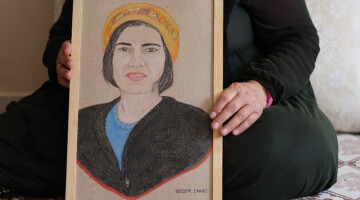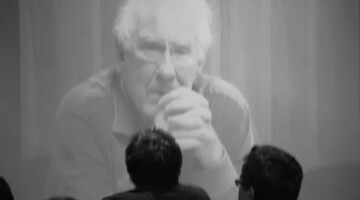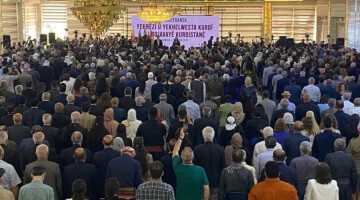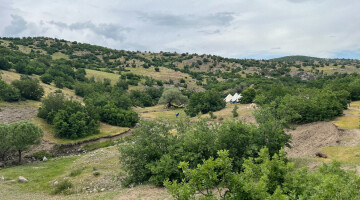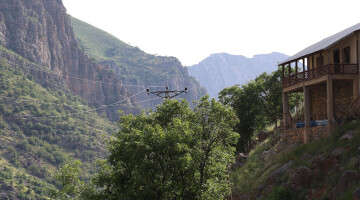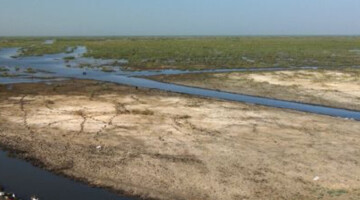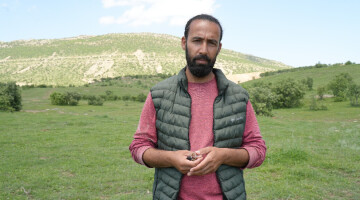Mesopotamia Ecology Movement, Initiative to Keep Hasankeyf Alive, The Corner House and Peace in Kurdistan Campaign have sent an open letter to the UK Prime Minister Theresa May on April 28, 2018, the Global Action Day for Hasankeyf and Sur.
In this important letter on the international/downstream impacts of Turkish dams and in particular on the Ilisu Dam it is stated that the Turkish government has used and is using dams as a weapon against downstream people.
We publish the letter below;
Dear Prime Minister,
The Ilisu Dam and Turkey’s use of water as a weapon of war
We write as civil society organizations to draw your attention to the imminent impoundment by Turkey of the Ilisu Dam on River Tigris in contravention of international customary law relating to shared waterways, which requires negotiation and agreement on downstream flows. The announced impoundment of Ilisu comes at a time when Turkey is recklessly and illegally using water as a weapon of war against Northern Syria, denying those affected of their right to water, threatening to exacerbate the existing conflicts in the region and causing severe suffering to those who have already suffered seven years of brutal civil war. We would urge you to protest Turkey’s intended impoundment of Ilisu and to use all available diplomatic means to mediate a peaceful and fair settlement between Turkey, Syria and Iraq on the use of their shared rivers.
Turkey has pushed ahead with the Ilisu Dam project despite widespread international opposition. Funding for the project was refused by the World Bank because of concerns over downstream impacts and, in 2001, the UK Export Credits Guarantee Department signalled its unwillingness to support Balfour Beatty’s intended participation in the project, due in large part to similar concerns. Several other European Union countries have also declined to fund the project.
If the impoundment goes ahead as planned, the dam and its reservoir would destroy the livelihoods of up to 80.000 people, mainly Kurds, and flood the ancient city of Hasankeyf. Turkey’s current resettlement and cultural heritage salvage plans are wholly inadequate. Moreover, the downstream ecological impacts of the dam have barely been investigated, let alone mitigated.
Both Syria and particularly Iraq rely on the Tigris River, which is the vital water source for agriculture and urban centres. The storage capacity of the Ilisu reservoir would allow Turkey to halt flow of the Tigris to Iraq for months; and, even if operated without hostile intent, the dam, when combined with proposed irrigation schemes, would severely reduce downstream flows, increasing levels of salts in the water and gravely violating the right to clean water for downstream riparian people. The impacts would reach as far as the southern Mesopotamian Marshes, an area that was drained under Saddam Hussain but which has now been restored. The Marshes have been approved as a UNESCO World Heritage site in 2016.
Turkey has not signed the UN Convention on the Non-Navigational Uses of International Watercourses but international customary law requires mutual agreement between Turkey, Iraq and Syria on the use of shared waterways. Turkey has failed to reach such an agreement with its riparian neighbours over the use of the Tigris. Instead it has taken advantage of conflicts in Iraq and Syria to push ahead with a dam building programme that threatens further conflict by allowing Turkey to control the flows of the Euphrates and Tigris. Ilisu is a central part of this political project.
The Turkish government is now using its control over water as a weapon against those territories in Syria which have been liberated by the Syrian Democratic Forces (SDF) and which are now administered by the Democratic Federation of Northern Syria. In the spring and summer of 2017, as well as in recent weeks, Turkey cut the flow of the River Euphrates significantly, violating an agreement signed with the Syrian Government in 1987 to ensure a downstream flow of at least 500 m3/s at the Turkish-Syrian border. As documented in the attached report, only half of the agreed water amount was released.
There are therefore well-founded fears that the impoundment of Ilisu will be similarly used as a weapon of war, further exacerbating conflict in the region. The Turkish government says that the dam is nearly completed; but, in our view, it is not too late to reconsider. There is no urgent need for the planned electricity from the Ilisu Project in Turkey and protests on the ground and internationally continue to attract increasing support.
We request that the UK use its influence on Turkey to press for the impoundment of the Ilisu Dam Reservoir to be halted until agreements on downstream flows in the Tigris have been reached with the Iraqi and Syrian governments, the Democratic Federation of Northern Syria as well as affected people and critical civil society organizations in Turkey and Iraq. Negotiations should include the option not to operate the almost completed Ilisu Dam project. We believe that the UK can, and should, act in a mediating role.
We look forward to hear from you and are open to share more our positions on the Ilisu Project.
Yours Sincerely
Mesopotamian Ecology Movement
Initiative to Keep Hasankeyf Alive
The Corner House
Peace in Kurdistan Campaign
Solidarity Economy Association
Brighton Kurdistan Solidarity
Kurdish People’s Assembly UK
Roj – Kurdish Women’s Assembly UK
Kurdistan National Congress (KNK) UK
Jullie Ward MEP
Christine Blower, NUT International Secretary
Clare Baker, International Officer UNITE
Simon Dubbins, UNITE International Director
Doug Nicholls, General Secretary, General Federation of Trade Unions (GFTU)
Bert Schouwenburg, International Officer, GMB
Steve Sweeney, International Editor, Morning Star
Thomas Schmidt, Secretary General, ELDH European Association of Lawyers for Democracy and World Human Rights
Martha Mundy, Professor Emerita of Anthropology, LSE (in a personal capacity)
Yagmur Savran, Researcher at University of Bradford
Olga Vlagkouli, Project Architect
Rahila Gupta, journalist and writer
Dr Derek Wall, Lecturer in Political Economy, Goldsmith College
Dr Felix Padel, Oxford University
Lynn Wilde, University of Liverpool
Dr. Tom Wakeford, Coventry University
Peter Tatchell, human rights campaigner
John Hunt, journalist
Jonathan Bloch, writer
Antony Shephard, graphic designer
Les Levidow, Campaign Against Criminalising Communities (CAMPACC)
Stephen Smellie, Deputy Covenor, UNISON Scotland
Margaret Gallacher, Chairperson, South Lanarkshire Unison and Secretary of Scottish Solidarity with Kurdistan
Dr Sarah Glynn, Scottish Solidarity with Kurdistan
Sarah Parker, translator
Dr Dylan Musphy, teacher/historian
Fatma Kayhan, writer
Amber Huff, researcher
Salima Tashdemir, researcher
Pinar Akpinar, Sussex Kurdish Community
Jo Magpie, Journalist
Maude Casey, writer
Helen O’Neill, Social Worker
Brian Drummond, Minister
Martha Salter
Becky Hobbs
Meredith Tax, author, US
Kariane Westrheim, Professor, Department of Education, Faculty of Psychology, University of Bergen, Norway
Eirik Eiglad, New Compass Press, Norway
Dr. Gina Lennox, Alison Buckley, Zirian Fatah – Kurdish Lobby Australia

